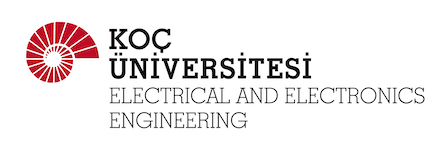Seminar by Dr. Filiz Yeşilkoy
November 20, 2019Speaker: Dr. Filiz Yeşilkoy
Title: Nanophotonic biochemical sensors: from plasmonic to dielectric metasurfaces
Date: Thursday, 12 September 2019
Time: 10:00-11:00
Place: ENG 120
Host: Hakan Ürey
Abstract:
Mobile, affordable and reliable biochemical sensors that can drastically reduce detection times by enabling multiple biomarker quantification from small sample volumes are essential for applications ranging from early-stage fundamental research to modern clinical practice. Unfortunately, current biosensing methods require laboratory infrastructure, trained personnel, complex and costly bioassay protocols. Therefore, they are not suitable for ubiquitous health monitoring sensor networks. Nanophotonic biosensors can detect biomolecules in a label-free and non-destructive manner based on the enhanced light-matter interactions at nanoengineered surfaces. In this talk, first, I will give an overview on the plasmonic biosensors, introducing different optical interrogation schemes including the intensity-based imaging and phase-based interferometric optics. In particular, I will present miniaturized portable bioanalytical platforms that enable on-site use. Second, I will demonstrate the use of high-Q dielectric metasurfaces for ultrasensitive biomolecule detection. Here, I will emphasize the importance of the hyperspectral imaging optics enabling the spatially resolved spectral data acquisition and dynamic threshold-based data processing to achieve unprecedented detection limits.
Bio:
Dr. Filiz Yesilkoy received her Ph.D. in Electrical Engineering from the University of Maryland, College Park, USA in 2013. While pursuing her PhD degree, Dr. Yesilkoy received UMD Ann G. Wylie Dissertation Fellowship, Future Faculty Fellowship, Distinguished Teaching Assistant Award and Graduate Student Service Award for her efforts to support female students and contributing to the diversity of the ECE Department. Dr. Yesilkoy worked as a postdoctoral researcher in Prof. Altug’s and Prof. Brugger’s laboratories at the École polytechnique fédérale de Lausanne (EPFL) from 2013 until 2019, during which time she spent one year at the University of Tokyo as a guest researcher in Prof. Kim’s group. She will start her own research laboratory as a tenure-track assistant professor in the Department of Biomedical Engineering of University of Wisconsin-Madison in 2020. Her research interests include development of nano-optical systems for sensing and spectroscopy, experimental and theoretical aspects of nano-electronic and nano-photonic devices, scalable nanofabrication methods for low-cost and high-throughput manufacturing, and imaging optics for biomedical applications. She has been serving as an elected chair of OSA’s Optical Biosensors Technical Group since 2018.
